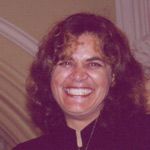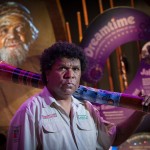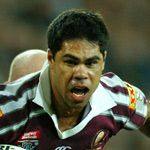
When Kutcha Edwards was 18 months old, he was taken from his mother and father and placed in care. He subsequently spent most of his childhood in institutions. Although he met his mother at the age of seven, he wasn’t reunited with her until he was 14. This, Kutcha explains, is one of the reasons why he is so passionate about his music.
“I just want to let people know that the Stolen Generation wasn’t a myth,” he says. “It really did happen to real people.”
Suffering from the hurt of being taken from his family while still a baby, Kutcha tells a heartbreakingly familiar story of strained family relationships. Because of their separation, he found it hard to reconstruct a bond with his mother when they were together again.
“It was a lot harder to live with her than apart from her because of the differences we had after all my years in institutions,” he says. “Not that I didn’t love her. But she had children after I was institutionalised, so it was like they were her closest siblings. And when I went to live with her, the differences were just too grand.”
Kutcha’s first musical stint wasn’t until 1991 when he joined the rock band Watbalimba as a singer. Two years later he joined the renowned Melbourne Koorie band Blackfire. At one of the first gigs Kutcha sang with boxing legend Lionel Rose.
Kutcha has travelled extensively throughout Australia and internationally with the band and hopes to tour again in the near future. But in the meantime, he’s released a solo CD, Cooinda, with tracks produced by friends such as Paul Hester, Paul Kelly and David Bridie.
“In Blackfire we sung about general Aboriginal issues, so this album is more about myself – who I am, where I’ve been and where I want to go personally.”
Cooinda relates Kutcha’s life’s journey with songs covering a range of issues, from his forceful removal from his family as a child to dedications to both his mother and late father.
“Stay With Me is a song I wrote after my father passed away. Its message is that what happened to me and my father doesn’t need to happen with my son and I.”
Kutcha believes that if you write about your experiences, then other people can draw strength from them.
“When I write songs, it’s like a debriefing of what I see. I’ve done songs for gaols and that’s really hit home in terms of what’s happening out there. I have to write about my emotions or else they become baggage and I carry them around.”
Kutcha respects and treasures the relationship he has with his son. However, it took an out-of-body experience to make him truly appreciate what he had in his life.
“In the early stages of my son’s life I was drinking and that just took over,” recalls Kutcha. “Then I had an angina attack and an out-of-body experience and saw my body in pain. I realised I was denying my son what I was denied – a father. So I gave up alcohol. Now that I don’t drink, I see him as a big part of me. He’s very proud of his old man and he’s a very big part of my life. I draw strength from him and he draws strength from me.”
While developing his singing and performing, Kutcha maintains strong links with his community through youth work. He works at the KODE (Koorie Open Door Education) School as a youth worker/mentor, teaches video production at an Aboriginal Recovery Centre and hosts 3CR’s Songlines radio program.
“I see a need for kids to have a chance to make their own destinies,” says Kutcha. “I help kids to write songs and poetry in juvenile centres so they can learn to debrief.”
Most importantly, Kutcha is following his heart and doing what he believes in. “I love what I do now,” he grins.
And so do we.
Deadly Sounds Male Artist of the Year 2001: Kutcha Edwards
A big man with an even bigger voice, Koorie songman Kutcha Edwards was completely overwhelmed at being named Male Artist of the Year.
“It’s great to be acknowledged, especially by your own people and family who know the struggles that I’ve been through,” says Kutcha. “I guess I must be doing something right!”
Kutcha has certainly done a lot right over his 12 years in the industry. A founding member of Blackfire, he once sang on stage with Lionel Rose, has performed in China, Mexico and Japan, and this year made a big impression at Yeperenye Federation Festival’s The Road Ahead concert in Alice Springs.
As well as being a talented singer/songwriter, Kutcha is an inspirational leader and speaker in his Koorie community. And of course this isn’t the first award Kutcha has won in 2001! In July Kutcha was named Person of the Year by the National Aboriginal and Islander Day of Observance Committee (NAIDOC) for his efforts both on and off the stage.
But back to the Deadlys, and Kutcha is thrilled to be recognised at what he calls “the highlight of the year for Aboriginal music”.
“I loved the whole atmosphere,” he says. “You bump into people in the same industry as yourself and there’s no politics!”
If you haven’t yet heard Kutcha’s big voice, check it out on his debut album, Cooinda.






Comments are closed.